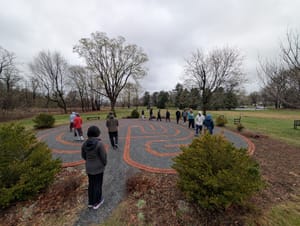The effort of some Wikipedia editors to delete the entry for tinywords is bumming me out. It’s clear that the discussion is being led by people with little to no understanding of haiku and short poetry (Sample quote: “let’s face it, they’re not publishing Finnegan’s Wake here, it’s real short stuff”) and votes are being cast by people who have made no effort to understand the journal or its significance in the haiku community. All they know is what they can find with a few cursory Google searches.
What’s more, my contributions to the tinywords entry are suspect because I have a conflict of interest — even though those contributions have primarily been adding links to outside references. That in itself appears to be a reason to vote for the deletion of the entry.
Worse, the argument is being conducted in part by an editor who has severely curtailed the tinywords entry itself. The result is to make the entry look less significant than it was before his or her edits.
Wikipedia’s guidelines note that discussions like this are not votes, but proceed by consensus, and that the discussion typically goes on for just seven days.
In short, a small group of people with little interest in the subject are making a snap decision about an encyclopedia entry that they’re unwilling to research and for which primary sources are inadmissible.
As a result, I’m not hopeful about the outcome (due August 9 or so, if the seven-day rule holds).
I shouldn’t take this personally, but I can’t help it. I’ve spent over 10 years publishing tinywords, and it’s been very well-received by most. I’ve made a few dollars from donations which have gone toward paying web hosting bills. (Sorry, Scot: I know I still owe you for this year.) But a few people have made it a point to target the site with their ill will or ignorance, occasionally through comments on the site itself, or through disparaging tinywords via other sites. Now it appears that the same thing is happening on Wikipedia.
Wikipedia is not the whole world. tinywords will still exist, whether or not the volunteer editors of Wikipedia recognize it or not. But it will close off one major channel through which people discover and share haiku. A Google search for “haiku” online delivers Wikipedia’s haiku page as its first result. From there, an interested reader might discover there are a whole world of lively internet journals publishing and discussing haiku and short poems. But if that searcher goes through Wikipedia, and Wikipedia succeeds in deleting references to tinywords, they’ll have a much harder time finding one of the major, active publishers of the form.
Note: Please don’t post ad-hominem attacks on the editors to the Wikipedia page linked above. The thing that would help most would be references to secondary sources, in print or online, in any language. But like I said, I’m not holding my breath.


